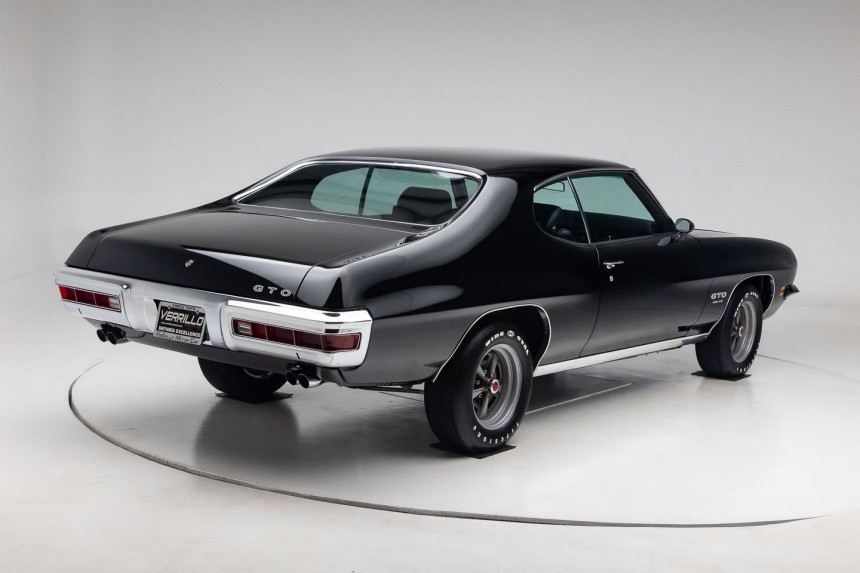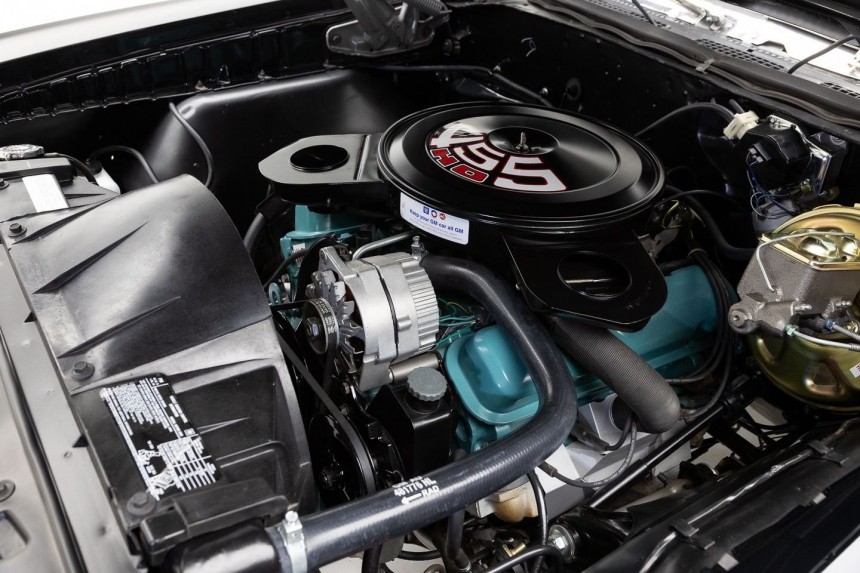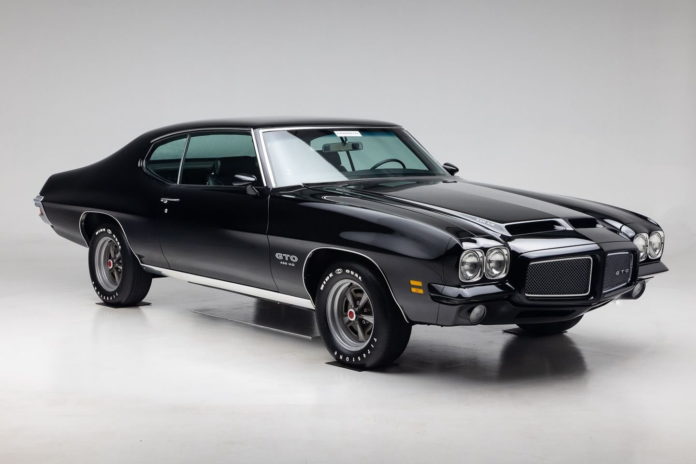They don’t build muscle cars like they used to. As cliché as it is, it’s true on several levels. When the third-gen HEMI and the LS go to pasture soon, we’ll say it ten times more. But to understand why 60s muscle car fans keep saying this, here’s one car for your focal point.
Photo: Verillo Motor Car Co
In any case, the 1971 GTO sported one of two colossal V8 engines. For some younger folks who grew up with Pontiacs and Chevrolet sports cars sharing the same LS V8, it’s wild to realize it was a whole different ballgame five decades ago. These engines ranged in size from a 400-cubic inch (6.6-liter) V8, or an even more bonkers 455-cubic inch (7.5-liter) V8. The larger of these two motors graces the engine bay of this here GTO, for sale via Cerillo Motor Car Company in Clifton Park, New York, a suburb near Albany.
This particular Pontiac 455 V8 is special in its own right. It’s the limited-run HO model. Until the 1970 model year, HO designated an entirely different set of credentials. It was only in the year of the GTO in front of us, 1971, that the HO moniker was changed represent to a lowered-compression evolution of the 1970 model year’s Ram Air IV engine. With a sturdy quad-bolt engine block, a lightweight intake manifold made from aluminum, and round port cylinder heads unique to the Pontiac V8 line. This was still a very serviceable muscle car engine.
The 455 HO Pontiac V8 from 1971 was listed from the factory jetting a (probably underrated) 335 gross horsepower and 480 lb-ft (651 N⋅m) of torque. All 1971 455 engines came wearing a Rochester Quadra-jet carburetor with variable geometry fuel jetting. Though down almost 30 horsepower from the previous year’s 455 Pontiac used in the previous year’s GTO Judge, owners of these 1971 Pontiac V8s can and did make up the difference in the aftermarket.

Photo: Verillo Motor Car Co
At least at stock, this was good for zero to 60 mph (96.5 kph) in 6.2 seconds and passing the quarter mile in 14.4 seconds at 98 mph (158 kph). This Starlight black GTO with a black vinyl interior here today comes with all the bells and whistles. That includes factory power steering, power front disc brakes, 15-inch Rallye II wheels, an endura front bumper, and an all too iconic Hurst shifter, just because no early 70s muscle car would feel bare without it.
Power is fed to the factory Turbo Hydra-Matic TH-400 four-speed manual transmission to an optional 12-bolt SafeTTrack limited-slip differential. For a muscle car known for going in straight lines mostly, a diff-setup this nice for its age ensures this GTO can at least take corners without embarrassing itself. It’ll never be an E-Type Jaguar in the bends, but we’re sure this GTO would take an E-Type to gapplebees in a drag race. From the front bumpers to the rear and inside the interior, this GTO is a fine ambassador for the twilight years of the first muscle car renaissance.
The flawless Starlight Black paint shines with intensity lots of factory paint jobs applied 50 years later don’t look quite as nice. One can only assume a full respray and detail were needed before it got to this condition. We can only imagine the factory push-button AM/FM radio still in this car giving a twang-like sound to whatever comes through the speaker no modern hi-fi can match.
The stunningly detailed and tidy state of the engine bay, complete with 455 HO decals, makes for a package that’s worth as much on the open market as any modern high-end sports coupe. In some ways, this GTO can give a driving experience no computer-assisted nonsense could ever provide. This phenomenon only drives up the price even further. For $125,000 before taxes and fees, you could buy a 2022 BMW M8. But tell us, between those two, which one would you rather drool over in a gas station? The bimmer owner would be made humble in about five seconds.

Photo: Verillo Motor Car Co
Check back soon for more from V8 Month here on autoevolution.

